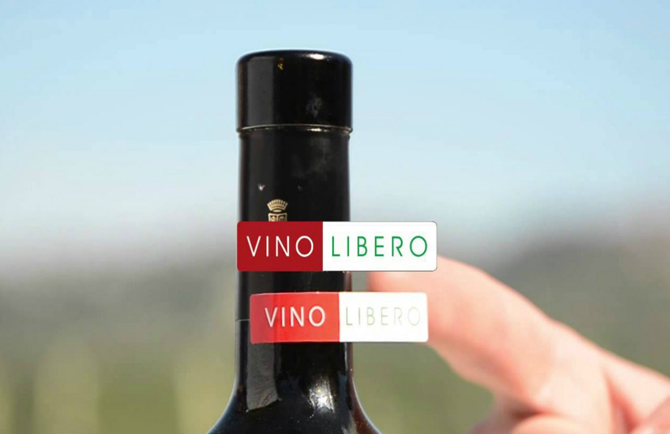Stop alla campagna “Vino Libero”: Eataly multata dall’Antitrust per 50mila euro
- Andrea Vitali
Il manifesto di Eataly parla chiaro e al punto otto ci ricorda: «Mai dovremo incorrere nella tentazione di utilizzare strumenti di persuasione occulta per incitare a comprare più del necessario.» Purtroppo i fatti raccontano un’altra Eataly, che invece ha ceduto alla tentazione di una pratica commerciale scorretta, utilizzando la dicitura “vino libero” per una campagna che ha lasciato intendere ai consumatori che il prodotto fosse totalmente libero da concimi chimici, da erbicidi e da solfiti. La vicenda inizia nell’aprile 2014 con una segnalazione del Codacons e si protrae fino al 9 maggio di quest’anno con un provvedimento dell’Antitrust che multa Eataly per 50mila euro per violazione del Codice del consumo con conseguente “divieto di diffusione e continuazione” della campagna.
Cartelloni pubblicitari ed etichette “Vino Libero” hanno dunque diffuso un messaggio fuorviante e a danno dei consumatori: a dirlo è proprio l’Autorità Garante della Concorrenza e il Mercato. Un provvedimento di dieci pagine, reso pubblico lo scorso 9 maggio, rende nota tutta la vicenda che ruota attorno alla campagna “Vino Libero” di Eataly. Tutto inizia nell’aprile 2014, quando una segnalazione del Codacons evidenzia come l’espressione “vino libero”, senza ulteriori specificazioni, possa far intendere ai consumatori che questo sia “libero da concimi di sintesi, libero da erbicidi e libero da almeno il 40% dei solfiti” rispetto al limite previsto per legge (come afferma anche l’Antitrust). A inizio 2015 l’AGCM invita Eataly a rimuovere “i profili di possibile scorrettezza”, correggendo i cartelloni pubblicitari e sostituendo tutte le etichette delle bottiglie. Sempre nel 2015, a febbraio, il procedimento si ferma e viene archiviato in quanto l’azienda di Farinetti si impegna formalmente ad adeguarsi alle indicazioni fornite dall’AGCM. Due mesi dopo però il Codacons torna a manifestare il problema: nessun cambiamento è avvenuto. Allora interviene la Guardia di Finanza che accerta che nessuna delle bottiglie in commercio è contrassegnata dalla dicitura corretta e richiesta dall’Autorità. “Vino Libero” continua ad essere un messaggio pubblicitario incompleto e ingannevole fino alla fine del 2015 e l’inizio del 2016, quando il caso viene finalmente riaperto e Eataly si difende affermando di non essere che il venditore del prodotto e dunque di non avere responsabilità sull’etichetta. Ma non funziona e l’AGCM fa notare che “Vino Libero” è un’espressione “omissiva” e segnala una condotta priva del “normale grado di diligenza professionale” da parte di chi per quasi due anni non è stato trasparente. Arriva così la multa di 50mila euro per Eataly e di 5mila per l’Associazione Vino Libero. Intanto, nella pagine web di Eataly dedicata a “Vino Libero” si continua a leggere che il progetto è: « Un modello “dinamico” che si arricchisce continuamente di nuovi argomenti, che promuove la ricerca e che si migliora costantemente, avendo però ben saldi i propri obiettivi di salvaguardia dell’ambiente, di tutela del consumatore e di soddisfazione del produttore».
Redazione
______________________________________________________________________________________
Stop to the advertising campaign “Free Wine”: Eataly fined by the Antitrust for 50thousands euro
